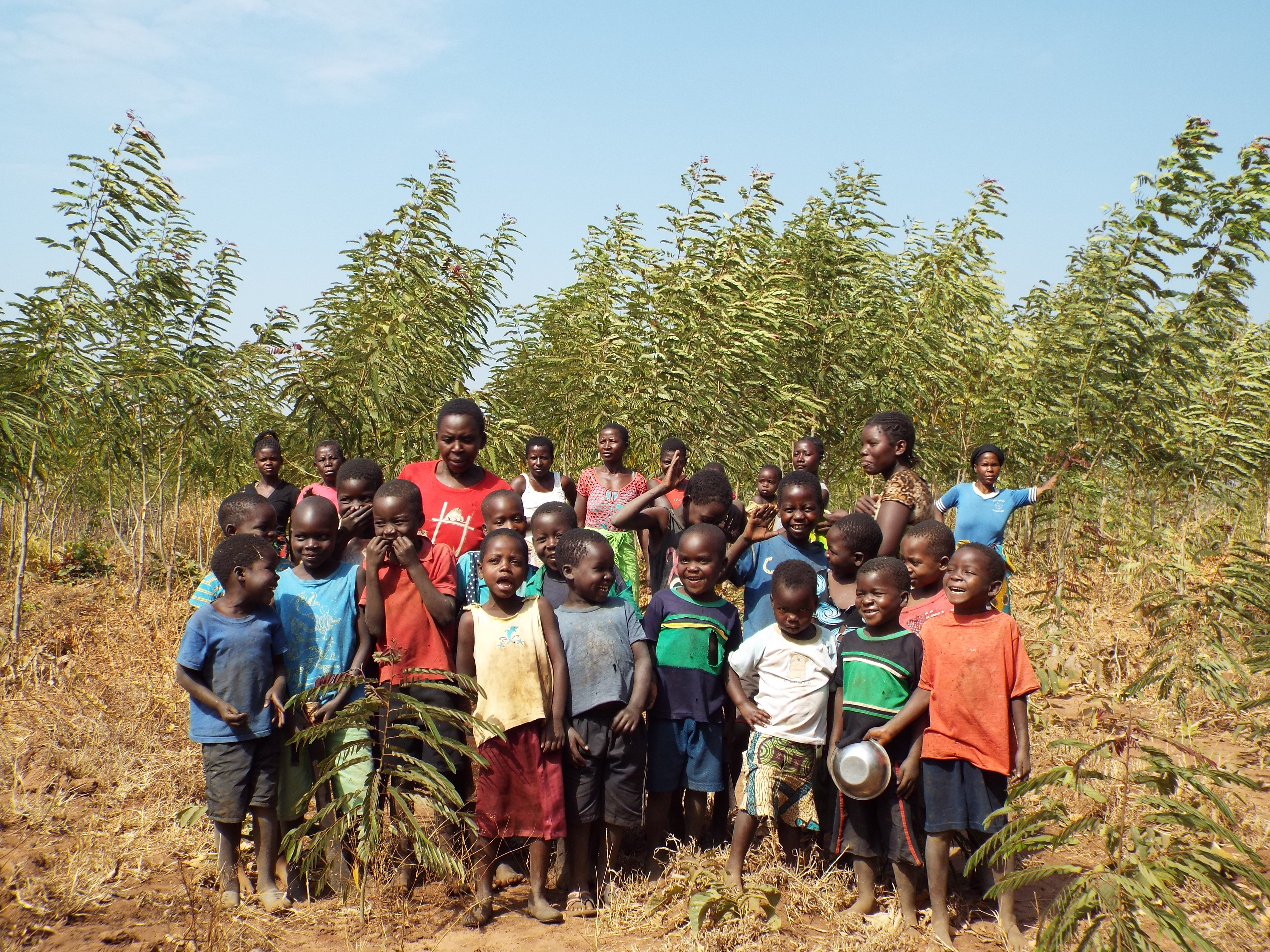
Women and children of Elias village one of the groups which tookpart in the Governmnet-backed scheme with KINDLE. Photo: Lindsay Farrimond.
When Holy Trinity Church in Jesmond celebrated their centenary in 2022, a plan to mark it by planting 100 trees in the UK was hampered by bureaucracy. They took the project to Africa where a reforestation initiative is supporting communities. Here is the story behind the project.
By Ian Farrimond, Reader at Holy Trinity Jesmond.
In all four of the Gospels (Matthew 14, Mark 6, Luke 9, and John 6), we have the Feeding of the 5,000 where Jesus takes the meagre lunch from a small boy and multiplies it to feed 5,000 men and probably even more women and children on the side of a mountain.
In 2022, Holy Trinity Jesmond celebrated the centenary of the completion and consecration of the church building. Towards the end of that year, we were looking at what we could do to leave some sort of long-term ‘legacy’ to ensure a lasting benefit. It was decided that we would look to plant 100 trees, one for each year since the church’s consecration, in various woods and forests around the North-East.
As it happened, this proved to be much harder than we imagined. Discussions with the City Council and other bodies behind community forests proved fruitless.
Then one of the church Mission Partners (MP) who had returned from the field in Malawi in 2020 had a conversation with some of the planning group and mentioned a project he had seen being run by the organisation he had been with, SIM Malawi. They with their partner KINDLE Orphan Outreach (KINDLE standing for Kids In Need Deserve Love and Encouragement) had been involved with a Malawi Government-backed scheme to plant Acacia trees in areas which had suffered deforestation.
The MP mentioned that Acacia trees take about five years to mature and then become a source of nectar which bees turn into the prized Acacia Honey, important to the local economy. Indeed, some of the villages that had taken part in the earlier scheme were looking ahead at the possibility of setting up bee hives to allow them to start collecting honey for this purpose. From that came the idea, that instead of planting 100 trees in the North-East of England, we should look at how we could support this work in Malawi to provide Acacia trees to help the local people.
Money was raised from church members, including donations of pocket money from children, and by the deadline over £1,000 had been raised. Now came the task of getting it to the KINDLE project with a guarantee that it would be use for the purpose of tree planting.
The project was severely hampered in 2023 when Cyclone Freddie, one of the most deadly to hit Malawi, Mozambique, Zambia, and Zimbabwe struck, resulting in loss of life and massive homelessness problems and also major disruption to the already fragile infrastructure of the country.
However, in January of this year, the project came to fruition and seedlings were planted in a number of locations around where KINDLE operated. The Director of KINDLE was delighted both with the original initiative and with the outcome of its application.
He said that the funds had enabled KINDLE to set up 24 ‘Reforestation Village Clubs’ each of which established its own nursery to cultivate trees from seed to seedlings. These Clubs impact around 600 families (probably in excess of 2,500 people in all).
A number of tree species, Acacia as originally intended, along with a number of other indigenous tree species all of which have multiple uses, were planted. According to KINDLE, the germination rates were so successful that more than 30,000 seedlings were planted in January 2024! The newly planted seedlings are also covering an area of more than eight acres of ground that have been denuded of trees because of excessive deforestation.
The Director of KINDLE said: “We are very thankful to our supporters for making this happen. Our reforestation drive focuses much on the survival of the planted trees, hence our initiative branded ‘Tree Parenting’.”
God took a boy’s meal and shared it with thousands. He took the idea for a church legacy of 100 trees an turned that into thousands! As they say in Chichewa - the official language of Malawi – a worship chant heard regularly in churches across the country: ‘Mulungu wabwino nthawi zonse ndi nthawi zonse Mulungu wabwino’ (God is good all the time and all the time God is good!).